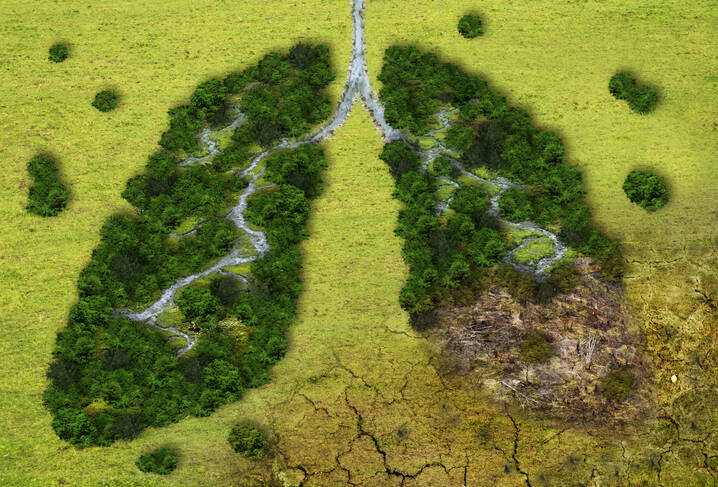World Health Day reminds us of the importance of protecting nature

The World Health Organization reminds us: our planet, our health. Each of us can make a difference and protect nature.
Article content
The World Health Organization (WHO) has set a motto for this day:
Our Planet, Our Health.
It is an important reminder that it is not enough to look after ourselves and our health. We need to look after the health of our planet and the nature on it.
Can we still imagine a planet where clean air, water and food are available to all?
Diseases such as cancer, asthma and heart disease are on the rise in the world. Excessive pollution is to blame, both in the air and in our environment.
Air pollution also affects people's physical health. Extreme weather, floods and droughts threaten food security and the spread of infectious diseases.
The pandemic has held a mirror up to us
The pandemic has also held up a mirror to us. It shows that it is possible to slow or stop air and environmental pollution.
It has also drawn attention to the inequalities in our world. It has exposed weaknesses in all areas of society and highlighted the urgency of creating a sustainable society. A welfare system must be created that is, however, sustainable for future generations and, above all, does not violate ecological limits.
Long-term investment, a protection system and a sustainable strategy are needed. Breaking the current cycles of destruction of the planet and human health requires legislative measures, reforms of businesses and the encouragement and motivation of individuals to make healthy choices.
Deaths due to the climate crisis
The WHO estimates that more than 13 million deaths a year worldwide are due to avoidable environmental causes. This includes the climate crisis, which is the greatest health threat facing humanity. The climate crisis is also a health crisis.
More than 90% of people breathe unhealthy air caused by the burning of fossil fuels. The spread of mosquito-borne diseases is also accelerating, caused by global warming.
Huge amounts of pollution and plastics are also found at the bottom of our deepest oceans or highest mountains. Worst of all, they have entered our food chain.
We are witnessing the production and consumption of highly processed, unhealthy foods and drinks, which are fuelling a wave of obesity, increasing the incidence of cancer and heart disease, and generating a third of global greenhouse gas emissions.
Protecting nature and the climate
People can help protect their health from the effects of air pollution by, for example, using public transport, walking and cycling, avoiding cars and burning waste.
According to the WHO, climate change can create a domino effect of other negative impacts on human populations and their environment.
"Climate change is manifested by changes in precipitation, an increase in extreme weather events and an increase in average annual temperature. These factors affect the persistence and emergence of bacteria, viruses, parasites, harmful algae, fungi and their vectors, as well as the progression of food-borne diseases and the risk of toxic contamination," warns the WHO.
Interesting resources










